Arlington Public Schools’ counselors use a comprehensive developmental guidance and counseling model. The purpose of the school counseling program is to promote the learning process. The goal of the counseling and guidance program is to assist students in acquiring the attitudes, knowledge, and skills that contribute to an effective learning in school and across the life span.
Counselors assist all students in developing and applying skills needed to enhance personal, social, career and academic growth. Professional counselors are assigned to each elementary, middle, high and alternative school. They provide individual and group counseling, conduct classroom guidance activities, disseminate educational and career information, assist in the test-taking process, and serve as consultants to parents, teachers and administrators.
Counseling Role
School Counselors work to establish trusting, confidential relationships with students, focused on problem solving, self-awareness, discovery and individual development.
School Counselors focus on the WELL-BEING of students, to ensure that all students are available to learn.
School counselors use a variety of educational resources and programs to benefit the changing needs of students, parents, faculty and community.
School Counselors use the ASCA model (American School Counseling Association) to provide many services including the following:
- Individual Counseling: Non-therapeutic, preventative counseling available on request or through referral (including self-referral by students).
- Small Group Counseling: Counselor led groups where students process and learn to manage emotions, behaviors, or age appropriate issues (such as friendship problem solving skills). Small groups may include the use of proven school-based programs, curriculums and/or techniques.
- Large Group Counseling: Regularly scheduled whole class character education/SEL (social-emotional learning) lessons, focused on supporting positive growth and development.
- Crisis Counseling: On an as-needed basis.
- Consultation/Coordination Services: Problem solving and referrals using a variety of school-based programs and personnel; including referrals to School Psychologist and/or School Social Worker.
Bullying Prevention
In our Bullying Prevention unit, Hoffman-Boston students learn how to Recognize, Report, and Refuse Bullying. We also learn about being Upstanders.
Recognize
Bullying hurts someone’s body, feelings or belongings; it happens on purpose; it is unfair or one-sided; it happens more than once; and we are unable to get it to stop.
Report
When we recognize bullying it happening, we must report it to a caring and trusted adult. When we report bullying, we try to use an assertive voice that is clear, serious, and respectful. In our Bullying Prevention Unit, all students are asked to identify caring and trusted adults in the community who they could report bullying to.
Refuse
Both Upstanders and anyone who is experiencing bullying can refuse bullying by telling the bully or bullies to stop using an assertive voice.
Child Protection Unit
The Child Protection Unit includes one grade level specific lesson in Kindergarten through 5th grade classrooms. Students learn ways to help them decide if something is safe or not: specifically, about safe, unsafe, and unwanted touches, and rules about touching private body parts (we define this to students as the area covered by swimsuits). They also learn to say no to unsafe or unwanted touches, and to tell an adult if someone breaks rules about touching private body parts. Students also practice asking an adult for help, telling an adult about an unsafe situation, and being assertive to get out of unsafe situations.
Career
In the counseling unit on Careers, Kindergarteners:
- Learn that people have jobs and a variety of jobs exist.
- Learn that people dream about getting certain jobs
- Learn about jobs people do at our school.
- Learn about jobs people do in our community.
Bullying Prevention and Intervention
What is Bullying?
Student bullying or harassment is the repeated infliction or attempted infliction of injury, discomfort, or humiliation on a student by one or more students. It is a pattern of aggressive, intentional or hostile behavior that occurs repeatedly and over time. Bullying/harassment typically involve an imbalance of power or strength. Bullying/harassment behaviors may include: physical, verbal, or nonverbal behaviors. These behaviors include, but are not limited to, intimidation; assault; extortion; oral or written threats; teasing; name-calling; threatening looks, gestures, or actions; rumor spreading; false accusations; hazing; social isolation; and abusive e-mails, phone calls, or other forms of cyber-bullying.
At Hoffman-Boston, our students learn the 3 R’s of Bullying Recognize – Bullying is unfair and one-sided. It happens when someone keeps hurting, frightening, threatening or leaving someone out on purpose.
Report – Reporting isn’t tattling! Reporting is telling an adult in order to keep people safe. Any time is a good time to report bullying.
Refuse – If you feel safe,
1) Get calm,
2) Stand straight and tall,
3) Look at the person you are speaking to,
4) Say what you mean in a strong, clear, respectful voice. Example: “Stop! We do not act like that here.”
Other resources
- Virginia Law: https://www.doe.virginia.gov/support/prevention/bullying/
- APS Information: https://www.apsva.us/student-services/bully-prevention/
- National Bullying Prevention Center: https://www.pacer.org/bullying/
- Bullying and Mindset: https://www.stopbullying.gov/blog/
Reporting
- Encourage your student to let a trusted adult know what is happening:
- Student’s Teacher
- School Counselor
- School Administrator
- Extended Day Director (if occurring in Extended Day)
- Follow up
Meet the Team!
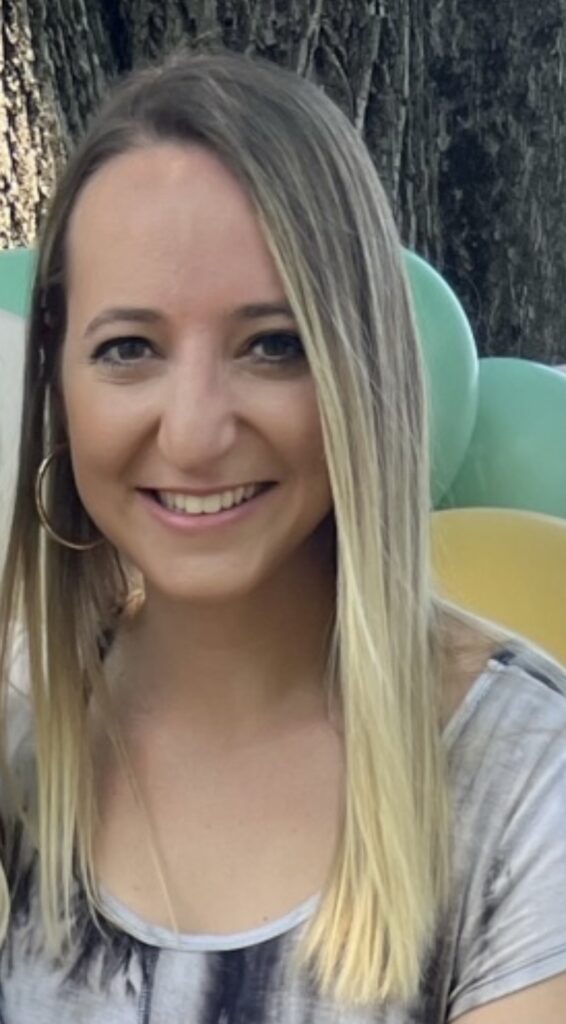
Alexandra Lerner
School Counselor
M.A. Education and Human Development, School Counseling, The George Washington University, 2022. Hi! I’m Allie Lerner, and I’m thrilled to be one of the counselors at Hoffman-Boston. I began my journey as a School Counselor here in 2022 and feel lucky to be part of such a wonderful community. Supporting students as they grow and succeed both in and out of the classroom is something I’m truly passionate about. I’m excited to connect with them through classroom lessons, small groups, and individual counseling. Outside of school, I enjoy spending time with my friends and family, staying active, traveling, and cheering on my favorite sports teams—GO CAPS, ORIOLES, AND RAVENS! I grew up in Northern Virginia and love being an All-Star right here in Arlington!
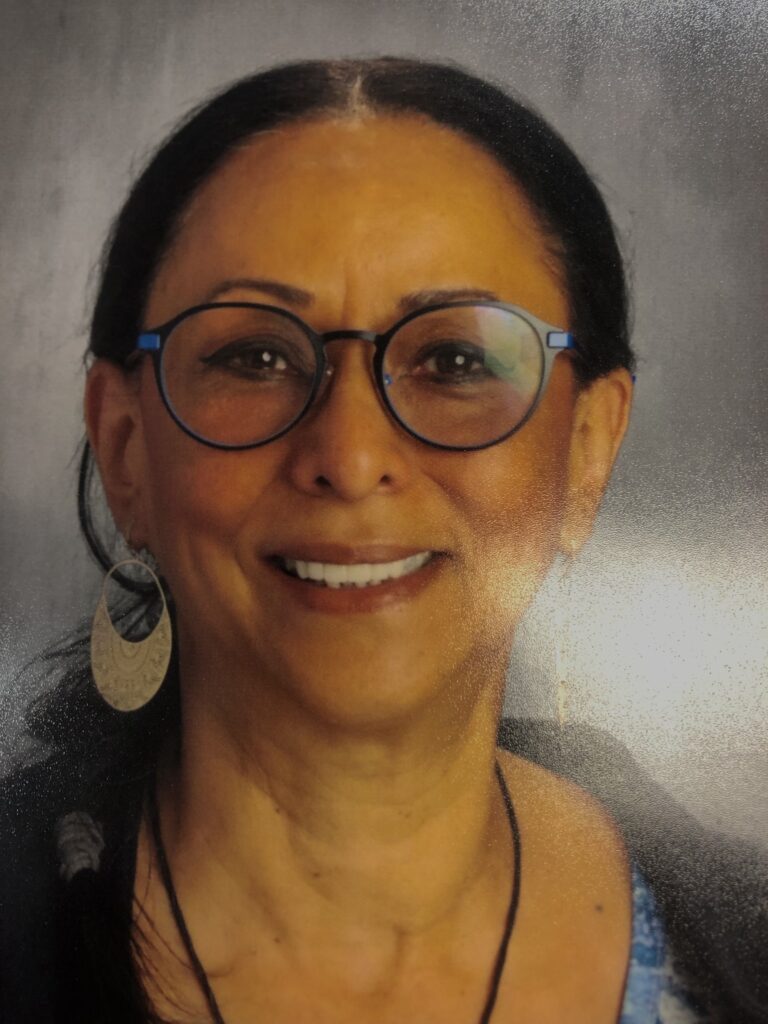
Velma Campbell
School Counselor
BA Psychology, Cum Laude, Curry College, Milton MA 2005: M.Ed. Counseling and Development, George Mason University, Fairfax VA . I have worked as a counselor and social worker (Lic. Social Worker, Boston, MA), primarily with children, since 1998. My roles since 1998 have included school counselor (Boston, MA; London, England; Fairfax County, VA); homeless shelter Children’s Case Manager (Fairfax County); in-home Family Therapist (Washington, DC); and 9-11 Outreach Crisis Counselor for Arlington County/FEMA, following the attack on the Pentagon. In my spare time I like to take long walks, paint and bake. I am a huge fan of British football (soccer) among other sports.
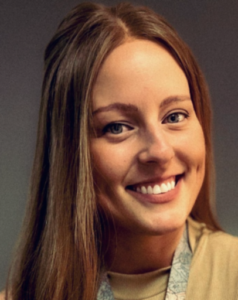 Brenna McGreevy
Brenna McGreevy
Behavior Specialist
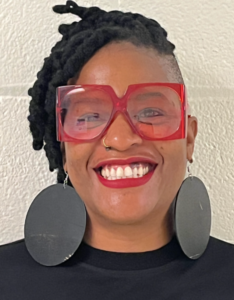 Vashon Bethea
Vashon Bethea
Testing Coordinator
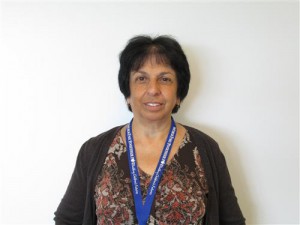 Carmela Del Vecchio
Carmela Del Vecchio
Occupational Therapist
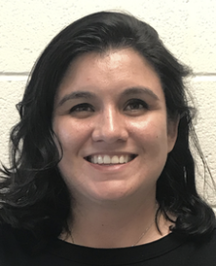 G. Michelle Alvarez
G. Michelle Alvarez
Speech Language Pathologist
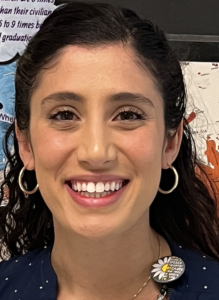 Christy Tolevski
Christy Tolevski
Speech Language Pathologist
Hello! My name is Christy Tolevski. I am a speech-language pathologist (SLP) at Hoffman-Boston Elementary. I have been a practicing SLP since 2017.
I was born in raised in Rochester, NY and completed all my clinical training in Buffalo, NY. In 2015, I graduated with my bachelor’s in speech-language pathology from SUNY Buffalo State College. In 2017, I graduated with my master’s degree in communicative disorders and sciences from SUNY University at Buffalo.
As a speech-language pathologist, I support students with disabilities reach their full communication potential. I support students in the areas of articulation, expressive-receptive language, voice, social communication, and alternative and augmentative communication.
In my spare time, I enjoy taking science related or writing classes, reading sci-fi or fantasy, jogging/hiking, watching anything related to animals/nature, video chatting with my family/friends, exploring the DC areas with my spouse, and listening to podcasts on my drive in to work.
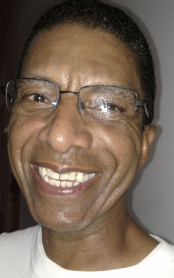
Ken Mifflin
Occupational Therapy Assistant
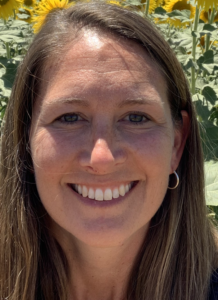 Jill Baird
Jill Baird
Physical Therapist
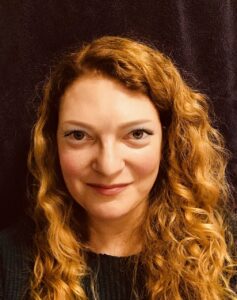 Deborah Hammer
Deborah Hammer
Autism Specialist
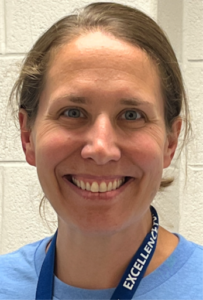 Karen Hartzler
Karen Hartzler
School Nurse
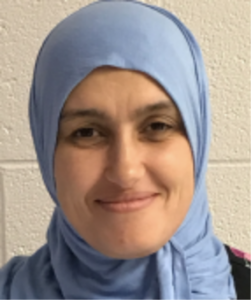 Houda Fakkar
Houda Fakkar
Assistant Nurse
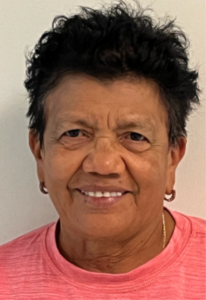 Flor Cruz
Flor Cruz
School-Base Sub
 Contact
Contact  Calendars
Calendars Careers
Careers Engage
Engage  District
District
